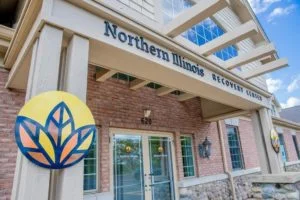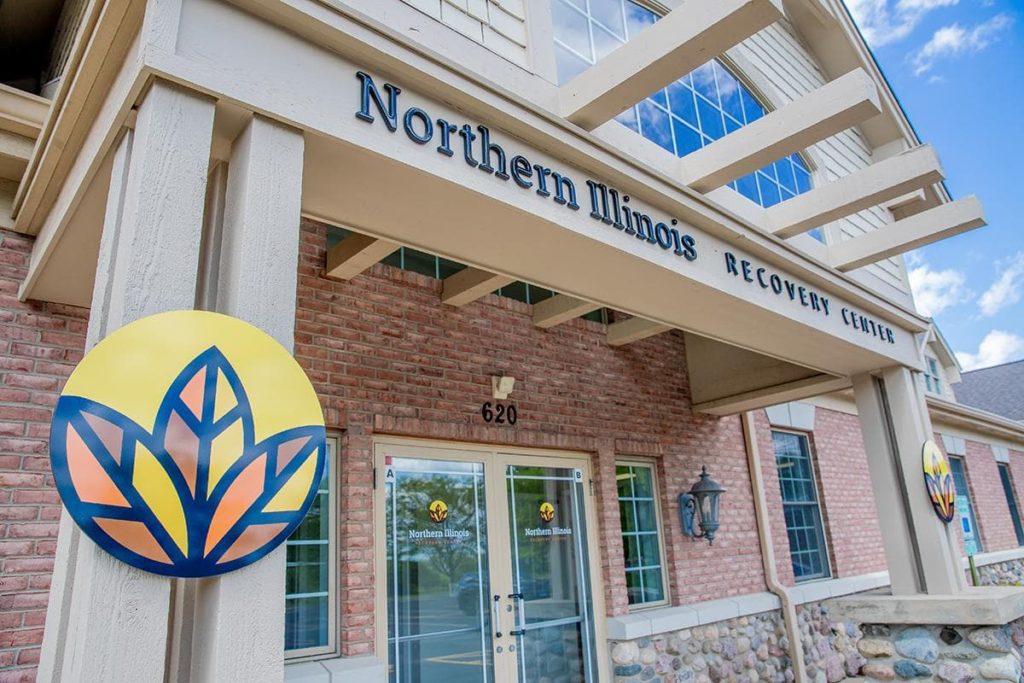Alcohol and Drug Rehab Center Near Arlington Heights, IL
Northern Illinois Recovery Center offers a full continuum of care, from initial detox to long-term aftercare, ensuring that individuals receive the support they need at every stage of their recovery journey. Each level of care is designed to address specific needs and promote lasting recovery. If you or a loved one need help, call us today.
Jump to Section
Addiction Issues in Arlington Heights, IL
Arlington Heights is a vibrant suburban village located in Cook County, Illinois, about 25 miles northwest of downtown Chicago. It is known for its family-friendly environment, excellent schools, and recreational and cultural amenities. Unfortunately, like many communities located near high-population cities like Chicago, Arlington Heights is a victim of addiction issues.
- Opioid Overdose Deaths: In Cook County, where Arlington Heights is located, opioid overdose deaths have been a significant issue. In 2022, there were 1,599 opioid-related overdose deaths in Cook County. This reflects the broader opioid crisis affecting many communities in Illinois.
- Emergency Responses: There has been a noticeable increase in emergency medical service (EMS) responses to opioid overdoses, indicating the severity of the crisis.
- Alcohol and Marijuana Use: According to the Illinois Youth Survey, which includes data from suburban areas like Arlington Heights, a significant percentage of high school students have experimented with alcohol and marijuana. For example, 61% of high school students in Illinois have tried alcohol, and 36% have tried marijuana.
- Commonly Abused Drugs: Similar to other parts of Cook County, widely abused substances in Arlington Heights include alcohol, marijuana, prescription opioids, heroin, cocaine, and methamphetamine.
When to Consider Drug Rehab

Many individuals struggling with substance use disorders do not realize that they need professional help. However, recognizing that you have an alcohol or drug use disorder and require expert help is the most important step toward recovery.
The most common signs that you need to visit a drug treatment center, like Northern Illinois Recovery, include:
- Often grappling with strong cravings when you fail to take the drug.
- Presence of severe withdrawal symptoms when you do not consume the substance.
- Your loved ones express concerns about your physical, mental, or emotional well-being.
- Your drug use behaviors have led you to trouble with law enforcement officers.
- The condition is beginning to interfere with your career.
- You have attempted to quit without success.
- You are beginning to be irresponsible, such as neglecting your family’s needs.
Addiction Treatment Programs at Northern Illinois Recovery Center
Northern Illinois Recovery Center (NIRC) in Crystal Lake, Illinois, offers a comprehensive range of treatment programs designed to support individuals at various stages of their recovery journey. These levels of care ensure that patients receive the appropriate intensity of treatment based on their specific needs.
The drug and alcohol detox program at NIRC is often the first step for many entering recovery. It provides a safe and supervised environment for managing withdrawal symptoms.
This level of care includes 24/7 medical supervision to monitor vital signs and manage symptoms, medications to reduce withdrawal symptoms and cravings, and psychological support to address emotional challenges during detox.
The Medication-Assisted Treatment (MAT) program at Northern Illinois Recovery Center (NIRC) combines FDA-approved medications with counseling and behavioral therapies to provide a comprehensive approach to treating substance use disorders, particularly opioid addiction.
This integrative method addresses both the physical and psychological components of addiction for more effective and lasting recovery.
Residential inpatient treatment involves living at the facility to focus entirely on recovery without the distractions of daily life. Patients follow structured daily schedules that include individual and group therapy sessions.
Additional features of this drug addiction treatment program include access to psychiatric care and medication management, holistic therapies such as yoga, meditation, and recreational activities, as well as nutritional guidance and physical fitness programs.
The Partial Hospitalization Program (PHP) provides intensive treatment similar to inpatient care but allows patients to return home in the evenings. PHP involves several hours of therapy and treatment activities each day, typically five days a week.
It offers comprehensive therapeutic services, including cognitive behavioral therapy (CBT), dialectical behavior therapy (DBT), and trauma-informed care. This level of care provides flexibility to maintain some daily responsibilities while receiving intensive treatment.
Intensive outpatient programs are designed for individuals who need structured support but can manage independent living. Therapy sessions are held several times a week for a few hours each session, focusing on relapse prevention, coping strategies, and building life skills. IOP supports the transition back to work, school, or family life, with continued access to individual and group therapy.
An outpatient treatment program is less intensive and suitable for individuals who are further along in their recovery or have completed higher levels of care. It includes regular therapy sessions scheduled around the patient’s personal and professional commitments, ongoing support and monitoring to prevent relapse and flexible treatment plans tailored to the patient’s progress.
Sober living homes provide a supportive and structured living environment for individuals transitioning from intensive treatment to independent living. Features include a drug-free living environment with rules and guidelines to promote sobriety, peer support from fellow residents, access to community resources and continued outpatient treatment, and encouragement to develop life skills and personal responsibility.
NIRC’s aftercare programs provide ongoing support to help individuals maintain their sobriety and build a fulfilling life in recovery.
The programs include regular follow-up sessions and support groups, access to resources such as job placement services and educational opportunities, social events and alumni gatherings to maintain a supportive network, and continuous monitoring and support to adjust treatment plans as needed.
Co-Occurring Disorder Treatment
Northern Illinois Recovery Center’s dual diagnosis treatment provides a holistic, integrated approach to recovery, ensuring that individuals receive the comprehensive care needed to address both their mental health and substance use disorders. This multifaceted method supports long-term recovery and enhances overall quality of life.
Dual diagnosis refers to the presence of both a mental health disorder and a substance use disorder in an individual. Common mental health conditions that co-occur with addiction include depression, anxiety, bipolar disorder, post-traumatic stress disorder (PTSD), and schizophrenia. Treating these disorders together is crucial because each condition can influence the course and severity of the other.
Mental Health Treatment Programs
Treatment begins with a thorough assessment conducted by a team of professionals to identify all underlying mental health and substance use issues. This assessment helps in creating an individualized treatment plan tailored to the patient’s unique needs.
NIRC employs an integrated approach to treat both mental health disorders and substance use disorders concurrently. Addressing both issues at the same time is essential for effective recovery because treating just one disorder will not fully resolve the other.
Therapies Drug Rehab Centers in Arlington Heights Use
If you consider joining a rehab facility, expect your therapists to use evidence-based techniques during diagnosis and treatment. Such plans are science-based, so they deliver the expected results. Common evidence-based treatment plans for mental health challenges include:
- Experiential therapy
- Family therapy program
- Dialectical behavior therapy (DBT)
- Recovery coaching program
Looking for a Drug and Alcohol Rehab near Arlington Heights, IL?
After drug treatment, you will begin to see the world differently. However, the process demands resilience and time. If you or your family members are grappling with substance use disorders due to dependence on alcohol, opioids, or prescription medication, seek professional help from a drug rehab center. Contact Northern Illinois Recovery to speak to our therapist for expert advice on your mental health condition.


Licensed Physician and Surgeon
Dr. Beth Dunlap, a board-certified addiction medicine and family medicine physician, and is the medical director at Northern Illinois Recovery Center. She is responsible for overseeing all the integrated medical services at both campuses. Beth completed medical school, residency, and fellowship at Northwestern University, where she continues to serve on the faculty as a member of the Department of Family and Community Medicine. She has extensive experience in addiction medicine at all levels of care, and her clinical interests include integrated primary care and addiction medicine, harm reduction, and medication-assisted treatment.










